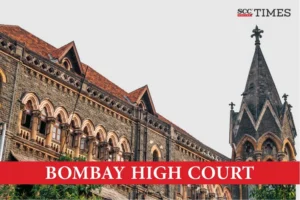Bombay High Court: In a case wherein petitioner sought direction to Respondent 3-University of Mumbai (‘University’) to grant him admission in the LL.B. course in Respondent 2-Siddharth College of Law, the Division Bench of A.S. Gadkari and Neela Gokhale, JJ., opined that imprisonment did not restrict an individual’s right to pursue further education and denying the opportunity to take admission in the College despite a seat being allotted by following the due process as prescribed, was a violation of the fundamental right of petitioner. Thus, the Court allowed petitioner to take admission in the LL.B. course in the said College for the AY 2024-25 for the batch of 2024-2027.
Petitioner was an accused in a case registered at Vishrambaug Police Station, Pune under Sections 153-A1, 505(1)(b)2, 1173, 120-B4, and 345 of the Penal Code, 1860 (‘IPC’) and Sections 13, 16, 17, 18, 18-B, 20, 38, 39, and 40 of the Unlawful Activities Prevention Act, 1967. Thereafter, the case was transferred to the National Investigation Agency and was presently pending before the Special Judge, City Civil and Sessions Court, Mumbai. Petitioner was currently detained in Taloja Central Prison, Navi Mumbai.
Counsel for petitioner submitted that petitioner appeared for the Maharashtra Common Entrance Test pursuant to permission granted to him by the Special Court and he had passed the said examination and was ranked at Serial No. 95 in the final merit list of Maharashtra State Candidates. Thereafter, he was provisionally allotted a seat in Siddharth Law College. It was submitted that petitioner was required to remain physically present for verification of his documents for the purpose of taking admission and since petitioner was detained in Taloja Central Prison, he was unable to remain physically present for the same.
The Court opined that imprisonment did not restrict an individual’s right to pursue further education and denying the opportunity to take admission in the College despite a seat being allotted by following the due process as prescribed, was a violation of the fundamental right of petitioner.
Thus, the Court allowed petitioner to take admission in the LL.B. course in the said College for the AY 2024-25 for the batch of 2024-2027 and since the College required physical presence of a candidate for verification of documents, the Court left it to the College to consider permitting the authorized representative/next of kin of petitioner to physically attend the College and verify the documents or in the alternative, to take the signature of petitioner on the documents from the Taloja Central Prison.
The Court clarified that it did not grant any exemption to petitioner from satisfying any of the requirements of the University and the College as other candidates were ordinarily required so to do, as per prevailing rules and regulations. The University and the College were at liberty to refuse permission to petitioner from appearing in the examination for failure to satisfy the minimum attendance criteria or any other eligibility criteria.
[Mahesh Sitaram Raut v. State of Maharashtra, 2024 SCC OnLine Bom 3071, decided on 19-09-2024]
Advocates who appeared in this case :
For the Petitioner: Mihir Desai, Senior Advocate with Pritha Paul, Rishika Agarwal.
For the Respondents: Chintan Shah, i/b Sandesh Patil; Vinod Chate, APP; Muzaffar Y. Patel, Rui Rodrigues.
Buy Penal Code, 1860 HERE
1. Section 196 of the Nyaya Sanhita, 2023 (‘BNS, 2023’)

